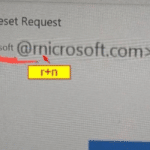Keywords targeted: PCI compliance UK, PCI DSS, PCI compliance mistakes, secure payment solutions, data security, payment compliance, PCI audit, UK business cybersecurity
In today’s digital world, protecting payment data is just as important as protecting your customers’ trust. Every time a business accepts card payments, it assumes a legal and moral responsibility to handle that information securely. That’s where PCI DSS compliance (Payment Card Industry Data Security Standard) comes in.
It sets out the framework for how companies must process, store, and transmit cardholder information. However, despite its importance, many UK businesses still fall short, not because they lack care, but because the PCI DSS can seem complicated, especially when technology and regulations are constantly evolving.
In this guide, we’ll break down the five most common PCI compliance mistakes that catch businesses out and explain how to avoid them. Whether you’re an SME or a large enterprise, understanding these pitfalls will help keep your systems secure, your customers protected, and your business out of trouble.
One of the biggest misconceptions about PCI DSS is that it’s something you achieve once and forget about. In reality, compliance isn’t a certificate to hang on the wall; it’s a continuous process that needs to be maintained.
Why this is a problem:
Many businesses pass their PCI assessment, then move on without ongoing checks. Over time, system changes, new software, or employee turnover can cause you to drift out of compliance without realising it.
How to fix it:
Pro tip: Treat PCI as a living process rather than a yearly tick-box exercise. This proactive mindset not only keeps you compliant but also strengthens your wider cybersecurity posture.
Another common mistake is keeping sensitive cardholder information you don’t actually need. Storing full card numbers, CVV codes, or magnetic stripe data increases your liability, and under PCI DSS, doing so breaches the rules.
Why this is a problem:
The more data you store, the bigger the risk if your systems are compromised. Even with encryption, hackers target stored data because it’s valuable.
How to fix it:
Pro tip: Think of cardholder data like a liability, not an asset. If you don’t need it, don’t keep it.
Technology can’t protect your business on its own. Human error remains one of the most common causes of PCI breaches, often due to employees not understanding the importance of compliance or how to handle sensitive data correctly.
Why this is a problem:
A single careless click on a phishing email or a misplaced spreadsheet can expose customer data and trigger a serious compliance failure.
How to fix it:
Pro tip: Keep training practical and scenario-based. Real-world examples make PCI DSS far easier to understand and follow.
Even if you outsource payment processing or IT infrastructure, you’re still responsible for ensuring your suppliers meet PCI DSS requirements. Many UK businesses assume their third parties handle compliance, and that assumption can be costly.
Why this is a problem:
If your provider suffers a data breach, your business could still face fines, reputational damage, and investigation. PCI DSS compliance doesn’t stop at your network’s edge.
How to fix it:
Pro tip: Compliance is shared, but accountability is yours. Always verify, never assume.
PCI DSS requires ongoing protection, not just paperwork. Many businesses become non-compliant because their systems are outdated, unpatched, or poorly monitored.
Why this is a problem:
Cybercriminals exploit outdated software and unmonitored networks. Failing to apply security patches or track system logs means potential vulnerabilities go unnoticed until it’s too late.
How to fix it:
Pro tip: Think of monitoring like a health check for your IT, small, regular check-ups prevent major issues later.
The cost of non-compliance can be severe. In addition to fines from payment providers, breaches can lead to legal action, data loss, and irreparable reputational harm.
In 2024, UK businesses lost millions to payment fraud and data breaches. Customers are now more aware of their rights and expect transparency and security from the companies they buy from.
Achieving and maintaining PCI DSS compliance doesn’t just keep regulators happy; it demonstrates professionalism, reliability, and trustworthiness. In competitive markets, that can be a real differentiator.
At Silver Lining, we help businesses of all sizes simplify PCI compliance through a combination of secure technology and expert support.
We provide:
Whether you’re just starting your PCI journey or need help managing ongoing compliance, our team can assess your current systems, close gaps, and provide the tools and training needed to keep your business secure.
PCI DSS isn’t about box-ticking or bureaucracy. It’s about protecting people, your customers, your employees, and your business.
By avoiding these common mistakes and taking a proactive approach, you’ll not only meet compliance requirements but also create a safer, more resilient business.
If you’re unsure where to start or want expert guidance, get in touch with Silver Lining. Our team specialises in helping UK businesses achieve and maintain full PCI compliance without the stress.


